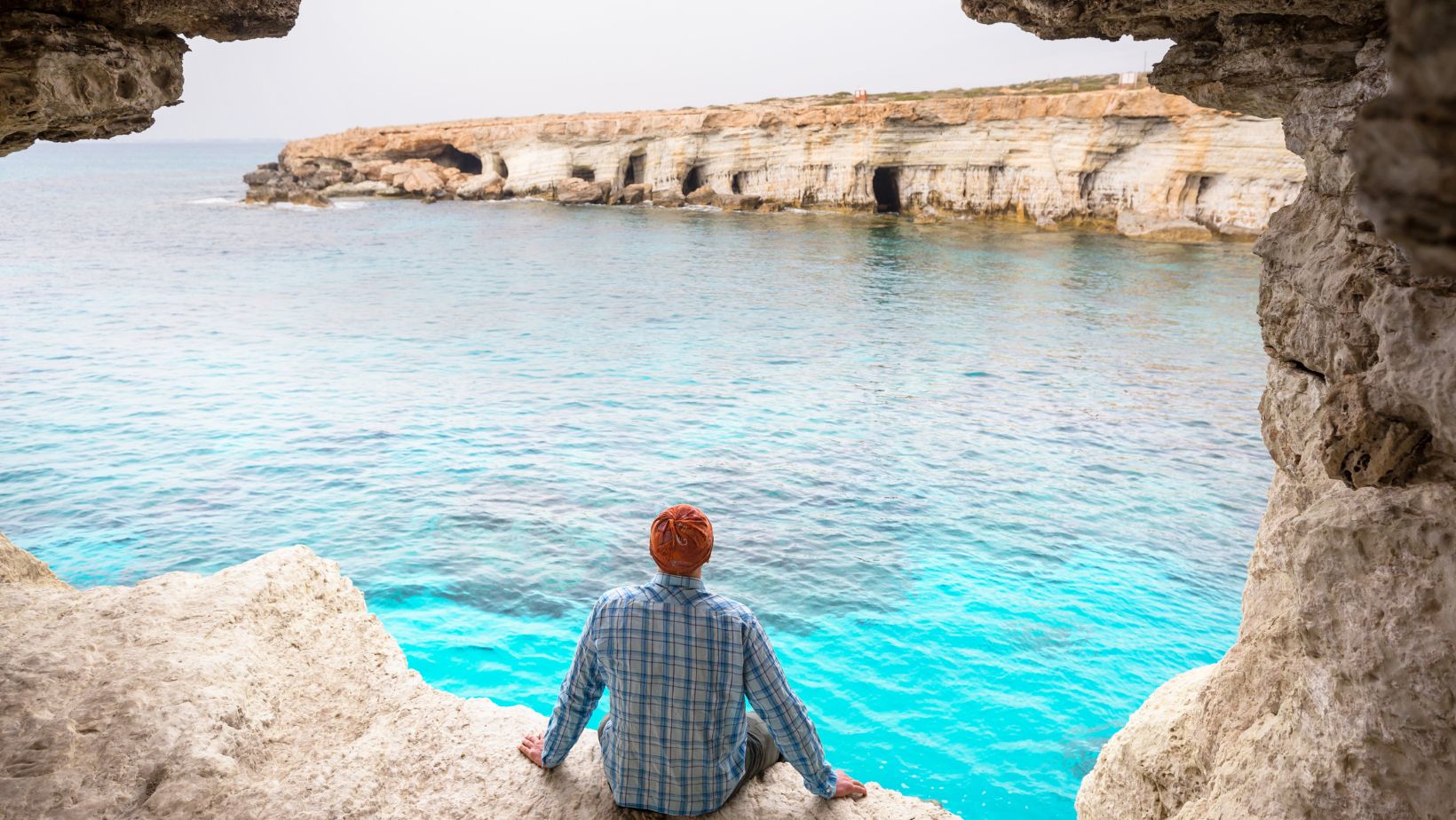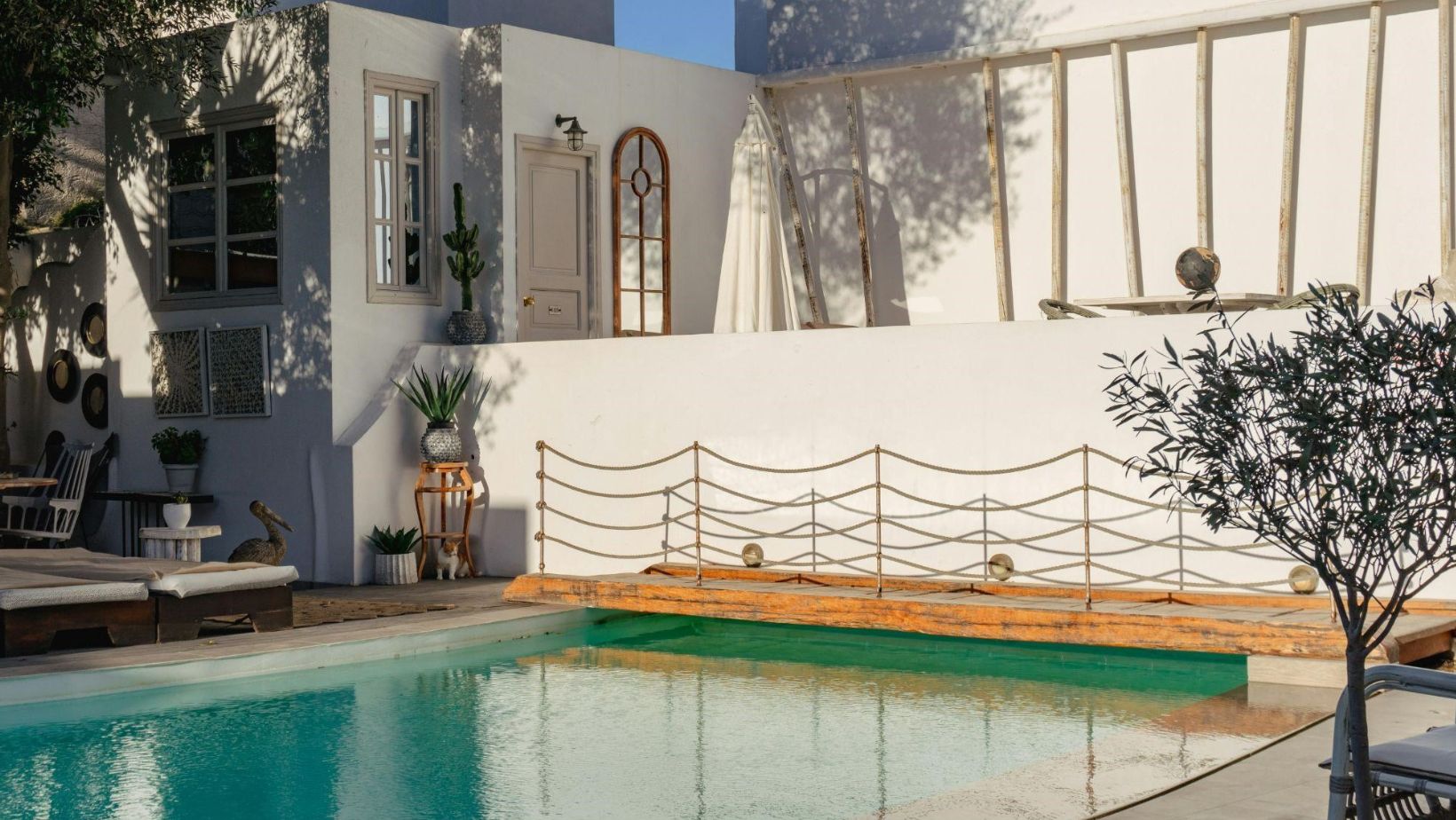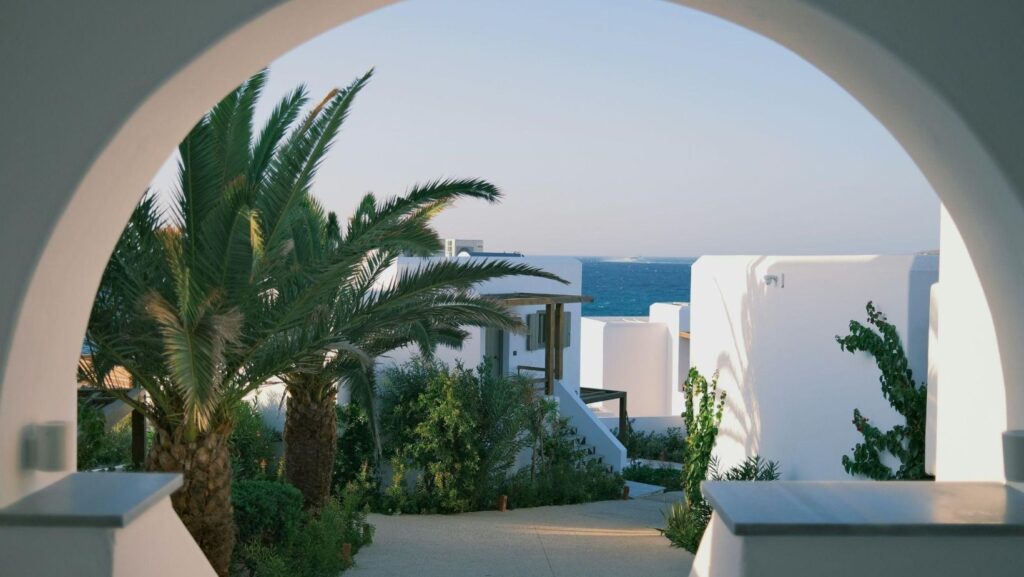Along with scenic coastlines and historical landmarks, Cyprus offers a lifestyle rooted in balance, leisure, and connection to the environment. The concept of slow travel, a deliberate choice to explore destinations with mindfulness and intention, pairs seamlessly with Cyprus’s laid-back Mediterranean ethos.
Let’s explore how Cyprus embraces slow travel, the role of luxury villas for sale, and why relocating to Cyprus appeals to those seeking a better quality of life and profits.
Mediterranean Lifestyle
The Mediterranean lifestyle has been shaped by thousands of years of history, culture, and the natural environment. Rooted in balance, community, and simplicity, this lifestyle embraces a slower pace that prioritizes well-being over constant productivity.
The warm, sunny climate of the Mediterranean has always encouraged an outdoor lifestyle. The region’s mild winters and hot summers naturally lend themselves to spending time in nature, enjoying meals al fresco, and taking midday breaks to avoid the midday heat.
Mediterranean societies have historically been built around tight-knit communities. Villages were designed with central squares and markets where people could gather, trade, and connect. This emphasis on human interaction over transactional relationships fosters a sense of belonging and prioritizes time spent with family and friends over work or material pursuits.
In Cyprus, for example, village festivals and shared meals have long been a cornerstone of daily life, reflecting the cultural value placed on togetherness.
Historically, Mediterranean cultures have been agrarian, with lives dictated by the rhythms of nature rather than the clock. This connection to the land persists today, influencing diets, routines, and the way people appreciate time.
Why People Are Choosing the Mediterranean Lifestyle Over Big Cities
In the past century, urbanization drove millions to large cities in search of opportunity, but today, many are rethinking this choice. While cities offer career growth, cultural attractions, and modern conveniences, they also come with significant downsides—high stress, long commutes, overcrowding, and a disconnect from nature.
The Mediterranean lifestyle offers a chance to step away from this cycle. People are drawn to the idea of working to live rather than living to work. This isn’t about abandoning ambition but finding a balance where work supports a fulfilling life. The Mediterranean diet, now considered one of the healthiest in the world, is a byproduct of this agricultural history. It emphasizes fresh, seasonal, and locally sourced ingredients, which is definitely a trend now.
What Is Slow Travel, and Why Does It Work in Cyprus?
Slow travel emphasizes quality over quantity — focusing on deeper, more meaningful experiences rather than rushing through a packed itinerary. Cyprus, with its manageable size and diverse offerings, makes it easy to adopt this approach.  Unlike sprawling destinations where long commutes are the norm, Cyprus allows travelers to access beaches, mountains, vineyards, and ancient ruins all within a short drive.
Unlike sprawling destinations where long commutes are the norm, Cyprus allows travelers to access beaches, mountains, vineyards, and ancient ruins all within a short drive.
Why Cyprus Is Ideal for Slow Travel
- Compact accessibility: A drive from Limassol’s bustling marina to the quiet vineyards of the Troodos Mountains takes less than an hour. This proximity encourages exploration without the need for rushed travel.
- Rich local experiences: Travelers can spend a day in a village like Lefkara, famous for its lace-making, or enjoy a cooking class preparing traditional dishes like souvla and kleftiko.
- Cultural connection: From visiting small, family-run wineries to participating in olive harvests, Cyprus offers opportunities for travelers to engage directly with local traditions.
Luxury Villas: The Perfect Base for Slow Travel
Luxury villas in Cyprus aren’t just accommodations; they are designed to complement the slow travel experience. Staying in a villa gives travelers the freedom to set their own pace while enjoying high-end amenities in serene, scenic locations. Here’s what makes Cyprus villas ideal for slow travel.
- Villas offer privacy and tranquility, with features like private pools, large terraces, and shaded gardens. Unlike hotels, villas provide a home-like environment where travelers can unwind without interruptions.
- Many villas are located near villages or cultural landmarks. For example, a villa in Paphos may be just a short walk from historical sites like the Tombs of the Kings, while a property in Limassol might offer easy access to local farmers’ markets.
- With fully equipped kitchens, guests can shop for fresh, seasonal produce and prepare meals inspired by Cypriot cuisine. This allows for a deeper connection to local flavors and traditions.
- Newer luxury villas often incorporate sustainable features, such as solar panels and water-saving systems, which aligns with the growing preference for environmentally conscious travel.
Relocating to Cyprus for the Mediterranean Lifestyle
For some, a temporary stay in Cyprus turns into a long-term decision to relocate. The island’s emphasis on quality of life, combined with practical benefits like favorable tax policies and residency options, has drawn people from around the world to call Cyprus home.
Why Relocate to Cyprus?
- With mild winters and over 300 sunny days annually, Cyprus offers a climate ideal for outdoor living and activities.
- Cyprus is ranked among the safest countries in Europe, making it particularly appealing for families and retirees.
- While Cyprus offers high-end living, daily costs — such as dining out, transportation, and utilities — are lower compared to many other European countries.
The Benefits of Owning a Villa in Cyprus
Luxury villas are not only an attractive option for travelers but also a sound investment for those planning to relocate or generate rental income.
Residency Through Property Investment
Purchasing property worth at least €300,000 qualifies non-EU nationals for permanent residency under Cyprus’s fast-track scheme. Residency extends to the applicant’s spouse, dependent children under 25, and even the applicant’s parents.  There is also no minimum stay requirement, which means residency can be retained even if you don’t live in Cyprus full-time.
There is also no minimum stay requirement, which means residency can be retained even if you don’t live in Cyprus full-time.
The ability to extend residency to children and parents makes this program particularly attractive to families seeking long-term stability. A family purchasing a villa in Limassol can access Cyprus’s excellent international schools while enjoying a spacious, secure living environment.
For non-EU nationals, residency in Cyprus provides a gateway to Europe. While Cyprus is not part of the Schengen Zone, its residency program can facilitate access to EU member states for business and leisure.
Benefits of Permanent Residency
- Permanent residency often simplifies the process of obtaining long-term Schengen visas, enabling travel across Europe without restrictions. For global entrepreneurs or frequent travelers, this offers convenience and flexibility.
- Residents gain access to Cyprus’s healthcare system, which is ranked among the best in the region for its affordability and quality. Cyprus’s public health system operates on a co-pay model under the General Healthcare System (GHS), which provides affordable access to medical services, including primary care, specialists, and hospital treatments. Private healthcare is also widely available, with state-of-the-art facilities and English-speaking doctors.
- The residency program’s inclusion of dependents makes it easier for families to settle down together. Children can benefit from access to well-regarded private and international schools that follow the British curriculum or offer International Baccalaureate programs.
Tax Incentives for Investors
Cyprus offers one of the most favorable tax systems in Europe, appealing to both individuals and businesses:
- Low corporate tax: At just 12.5%, Cyprus has one of the lowest corporate tax rates in the EU.
- No inheritance or wealth tax: Property owners can pass assets to their heirs without additional tax burdens.
- Special incentives for expats: Skilled professionals earning over €100,000 annually may also qualify for a 50% tax exemption on personal income for up to 10 years.
High Rental Demand
Luxury villas in Cyprus are in high demand among tourists, particularly during peak travel seasons. Travelers, especially families and groups, prefer villas for their privacy, spaciousness, and amenities, such as private pools and proximity to beaches. Properties in sought-after locations like Limassol and Paphos can generate substantial rental income, making them a practical choice for investors.
Embracing Slow Living: Day-to-Day Life in Cyprus
For those who relocate, life in Cyprus centers around balance. Unlike fast-paced urban hubs, the island encourages a lifestyle focused on family, community, and well-being.
A Day in Cyprus Can Look Like This
- Morning: Begin with a walk along a quiet beach or enjoy coffee on the terrace of your villa, accompanied by the sound of the sea.
- Afternoon: Visit a local market to shop for fresh produce or explore nearby cultural sites at a leisurely pace.
- Evening: End the day with a meal at a family-run taverna or cook at home using ingredients like fresh olives, tomatoes, and Cypriot cheese.
Slow Travel Meets Smart Living in Cyprus
Cyprus isn’t just a destination — it’s a lifestyle. The island’s luxury villas offer travelers the chance to slow down, explore at their own pace, and connect deeply with the land and its people. For those seeking a permanent change, relocating to Cyprus also provides tangible benefits, like tax incentives and EU residency, alongside an unmatched quality of life.
Known for its vibrant marina, international business hubs, and upscale cultural offerings, villas in Limassol are particularly appealing to high-net-worth travelers and business professionals. Villas in prime locations can also generate rental income ranging from €1,500 to €6,000 per week during peak seasons, depending on size, amenities, and location.
For families, the investment provides stability and a safe, welcoming environment for raising children. For entrepreneurs and retirees, it is a pathway to enjoying the Mediterranean way of life while capitalizing on a growing real estate market.
